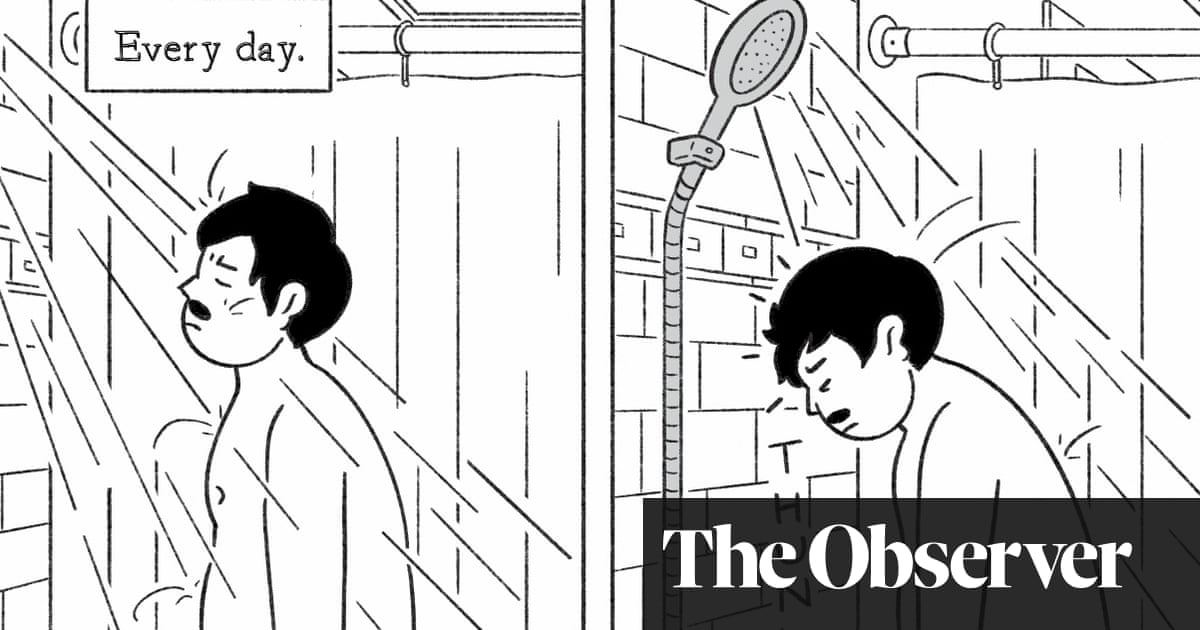
I’ve read Luke Healy’s new graphic novel twice: first, on screen last October (which was long before we asked him to be a judge of this year’s Faber/Observer graphic short story prize) and then in hardback a couple of weeks ago. The mark of a truly good book is that it’s even better second time around, and this one, for me, really was that. On the bus, my enjoyment was so patent – and so audible – the man next to me started trying to read over my shoulder, a fairly easy thing to do with a comic. If you’re that guy and you’re reading this, I do hope you bought your own copy later.
Self-Esteem and the End of the World (such an excellent title) may be described as autofiction. But the word “cartoon” is key here, because while regular autofiction is rarely funny – more often, it’s the polar opposite – Healy’s book is hilarious. Take the moment when Luke Healy, its neurotic central character, checks into a hotel. Asked by a receptionist whether the purpose of his stay is business or pleasure, he tells her: “I’m planning to read nine self-help books and synthesise their advice into an optimal plan for self-improvement.” To which she replies: “I’m going to put down ‘pleasure’.” (This was the line that had me guffawing on the bus.) The fact that the context for such jokes is a narrative involving grief, identity and the frightening climate crisis only makes them the more painfully funny. Every page sends up the terrible dissonance between our utter self-obsession and our anxiety (or not) at what’s happening out in the world before our very eyes.

The plot goes like this. Luke Healy is a graphic novelist who used to invest the entirety of his wobbly self-esteem in his career. But overnight that career disappeared (a pandemic, a paper shortage, trouble with supply chains). By the time we meet him, he’s working for a call centre, a company so obsessed with his output, it has given him a smart cushion for his desk chair (more hooting from me here). Will salvation ever come? Or is he doomed to spend the rest of his days asking taxi drivers if they ever feel their death is imminent? When Hollywood comes calling, having run out of Spider-Man stories to turn into movies, it seems like his luck may be about to change – except with Healy, nothing is straightforward. The book is set some time in the future, and LA, when he flies into it, is mostly under water.
Again, that dissonance: the real Healy draws his alter ego gazing silently at the runway, entirely surrounded by ocean, from the plane’s window, while his mum, who’s travelling with him, worries about having not visited the loo before the seatbelt signs came on – and by doing so, he makes the floods seem both terrifying and terrifyingly commonplace. Regular readers of this column will remember that I have a rather fierce love for Healy’s last book, The Con Artists. But I think this one may surpass it. There’s no one else quite like him working today, a cartoonist who makes high art of our despicable complacency, our quotidian and horribly paralysing derangements.
